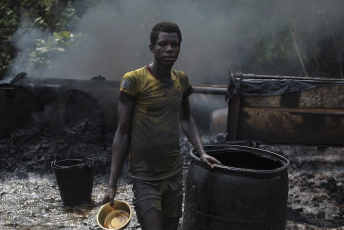In the first half of 2023, more than 180 kidnappings were recorded in the war-torn countries of Mali and Burkina Faso, an average of 30 a month or one a day. This is in Iine with the trend of the past few years – the kidnapping industry has been expanding since 2019, with about 400 victims in those two countries every year. Most victims are Sahelian citizens, as communities are caught in the crossfire between conflicting parties.
Kidnappings operate primarily as an instrument of war, used strategically by conflicting parties to achieve their goals. Although kidnapping and freeing foreigners (including Westerners) for ransom does still happen, there has been a shift to kidnapping Sahelians, driven by insurgents’ expansion goals.
Violent extremist and rebel groups, local self-defence militias (state-affiliated or not) and security and defence forces all engage in kidnappings. Violent extremists are the main perpetrators, in particular Jama’at Nasr al-Islam wal Muslimin (JNIM), a coalition of al-Qaeda groups. Security and defence forces, and their auxiliaries, engage in kidnapping for counter-insurgency purposes, while extremists use it as an expansion and consolidation strategy. Profit through ransom features only as a secondary motivation.
This is in sharp contrast with the early 2000s, when kidnapping was predominantly financially motivated. Then, insurgency groups affiliated with al-Qaeda and operating from southern Algeria moved into northern Mali and Niger. Between 2003 and 2012, almost 100 Westerners (mostly tourists, who comprised most of the victims at the time) were kidnapped in the Sahel.
Over that period, total ransoms were estimated at nearly US$90 million for al-Qaeda in the Islamic Maghreb (AQIM) alone. Kidnapping for ransom was extremely lucrative and was arguably the biggest source of financing for al-Qaeda affiliates in the Sahel then. This helped insurgents’ expansion and consolidation across the sub-region.
When Mali’s conflict began in 2012, kidnappings of Westerners declined sharply, largely due to the scarcity of targets. Western presence in the Sahel became increasingly regulated and securitised, in part because of the elevated kidnapping threat. But kidnappings did not stop. Instead, the industry evolved with the conflict, which was spreading across an ever-expanding geography: from northern to central Mali in 2015, to northern Burkina Faso in 2016, eastern Burkina Faso in 2018 and to coastal West Africa since 2020.
JNIM has been the main driver of this southward expansion and hence the main perpetrator of kidnappings in the Sahel. While JNIM still commits kidnapping for ransom, receiving large amounts of money from kidnapping foreigners and wealthy Sahelians, financing is no longer the main driver. The way it currently engages in kidnappings evolves based on the level of territorial influence it enjoys over a given area.
When JNIM first infiltrates a community, kidnappings spike in number. The group targets anyone associated with or representing the authorities and any key influential local figures. The purpose of kidnappings at that point is to intimidate locals, gather data and decrease the number of people who could threaten its establishment in that area – either by having them leave the area or by winning them over.
Once JNIM has established an acceptable level of influence – meaning its presence is not constantly contested by other state or non-state armed actors – kidnapping incidents decrease.
Incidents still occur for the above reasons (as individuals may become a threat later), but there are two additional reasons – to recruit young people and to conscript specialised individuals (such as doctors and nurses) when the group has a need. It also kidnaps anyone moving through its territory. These are short-term kidnappings for vetting purposes to ensure JNIM is aware of the activities being conducted in the areas under its control and who is conducting them (eg, non-governmental organisations).
Two districts in central Mali’s Mopti region illustrate this point, based on data from the Armed Conflict Location & Event Data Project (ACLED) from 1 January to 26 July 2023. The data indicate that in Youwarou, one of JNIM’s main strongholds where its influence is largely uncontested, only one kidnapping incident occurred this year. On 5 July, the group abducted four health workers, most likely because it needed their expertise to treat its members or to provide healthcare in hospitals located in the villages under its influence.
In the Mopti district, which remains highly contested due to the presence of state security forces and state-affiliated local militias, 11 kidnappings took place up to July 2023. JNIM targeted suspected collaborators, people who did not respect the group’s rules and village chiefs or their families.
This shift in kidnapping dynamics, from targeting Westerners for ransom to targeting Sahelians driven by expansion goals, is important to highlight – even though one practice does not exclude the other. Although the former brought crucial financial capabilities to violent extremist groups, it had a limited impact on communities.
The current kidnapping patterns, with most victims being from communities caught between various conflict actors fighting to expand their reach, are increasing the harms of the kidnapping economy to local populations. The kidnapping industry is at the heart of the Sahel conflict and is interlinked with instability in a much more complex way than being merely a source of financing. It should be recognised as such.
Flore Berger, Sahel Senior Analyst, GI-TOC







